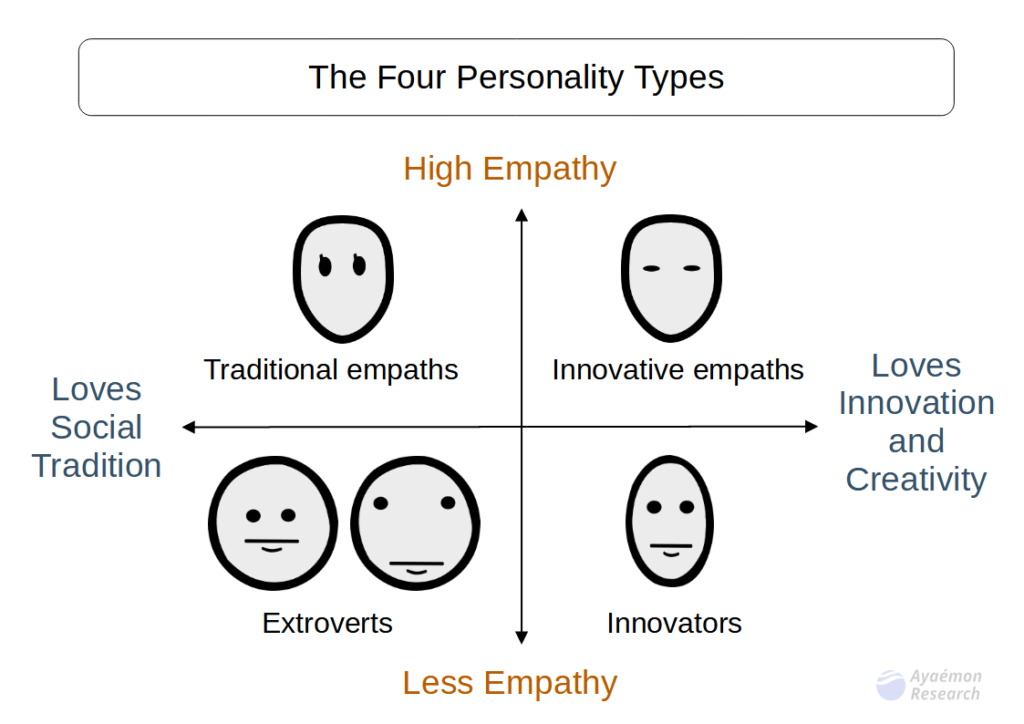Several days ago, I read a story with a good description of a mental complex. Today, I will introduce the structure of that story to solve our mental complexes.
How to solve our mental complex
Sometimes, we want to solve our mental complex. It often makes us suffer because it forces us to follow another value that doesn’t suit us. In other words, it prevents us from living as we are.
A mental complex means confusion with values. We have individual values based on our personalities, and our society often has different values. When we are confused with them, we have a mental complex. We can call mental complex “mental confusion in values.”

One of the typical symptoms is that we determine things by “I should” rather than “I want.” “I should” is a social requirement, and “I want” is our want. We always prioritize the former over the latter because social requirements affect us more than our wants.
Even if we can live without the mental complex, we often keep such beliefs acquired in childhood, and it suffers us.
In such a situation, the tips I introduce below might help to solve the mental confusion. Let me introduce it through a story structure I read several days ago.
The four types of personalities
To explain it, I will introduce the personality types I frequently use. We classify our personalities into four types as follows:

In this article, we will use the left side: extroverts and traditional empaths.
- Extroverts: People who like winning conflicts rather than helping weak people. They tend to follow social values and trends and don’t have their own values. That makes them judge a person by his status because it means a social judgment of him.
- Traditional empaths: People who like to help weak people rather than conflicts. They can judge a person by not only his status but also their empathy. When they have empathy for someone, they feel like helping him, even if everyone leaves him behind.

The story that the empathic hero solved his mental complex
Then, I will explain the structure of the story I read several days ago. It was a highly empathic story and a typical love story about a boy and girl in high school.
The hero boy had a mental complex. Although his nature was a traditional empath, the environment was all extroverted. In addition, he had an outstanding individuality to fit the environment—the fearful appearance that scared the weak people. Everyone treated him as an extrovert. That troubled him because he could not realize his desire to help weak people in trouble. Furthermore, he had to live with unwanted competition.

A heroine girl appeared before him at such a time. The girl liked him because he helped her with his kindness when she had been in serious trouble. He was the only one who gave her his hand, while all the others ignored her.
The girl was purely a traditional empath. She didn’t have a mental complex, so she showed her honest emotions to him. When he was kind or behaved more friendly toward her, she showed her pleasure honestly. When he tried to distance himself from his misunderstanding not to bother her, she showed her sadness. She didn’t care for his appearance. She just looked at his inner nature.
His struggle and honesty
That moved his heart but also confused him because he had never been treated like that. She was the first person to recognize his empathic nature. It was beyond his imagination.
He struggled with which values were correct in his mind. The more he thought of it, the more he lost his confidence.

At such a time, his surroundings threatened her because she disturbed their plans. His surroundings had evil intentions for him. They had filled their greed by taking advantage of his good nature. They revealed that and tried to force her to give in. On the other hand, she kept believing in his nature, even if she was in crisis.
He found out about it and saved her. His appearance helped him to protect her from them peacefully.
He finally understood which to believe. He became honest with himself. He showed her his honest feelings, which he had been hiding until then. She accepted it. That saved his mind and solved his mental confusion.
The ending
After that, he started to help weak people honestly. Even though many people misunderstood him, some people began to recognize his true nature.
He stopped caring about his appearance because he understood it also had a meaning: it sometimes helps weak people with unusual personalities in extrovert society, like the heroine girl. He found out that there was something only he could do.

He was able to be honest with her, too. He never had to lie to himself. He told her about his gratitude and love. Then, they had a happy ending.
The tips to solve a mental complex
That was such a story. Perhaps this is one of the typical structures of a highly empathic story.
That story structure provides us with tips to solve our mental complex.
First, we can understand our situation objectively. The hero was unaware of even his mental confusion at the beginning. Living as an extrovert was all for him. He lived with “I should,” which is his ordinary world. In other words, he lived in a narrow world. That caused him trouble in his life.

Next, we can understand the possibility that we have another personality. In other words, our personalities don’t fit the environment. If we know that, that gives us another world in which to live as we are.
Then, some people understand our nature. Although that sometimes confuses us, it is a process to solve our confusion.
Finally, the experience we tried to live as a different nature also has a meaning. His fearful appearance became an advantage in helping weak people. After we solve our complex, we will notice it. Our experience will never be wasted, even if we leave the current environment.
Conclusion
Above are tips to solve our mental complexes through the story structure.
That might help us solve the mental confusion.
Thank you for reading this article. I hope to see you in the next one.


